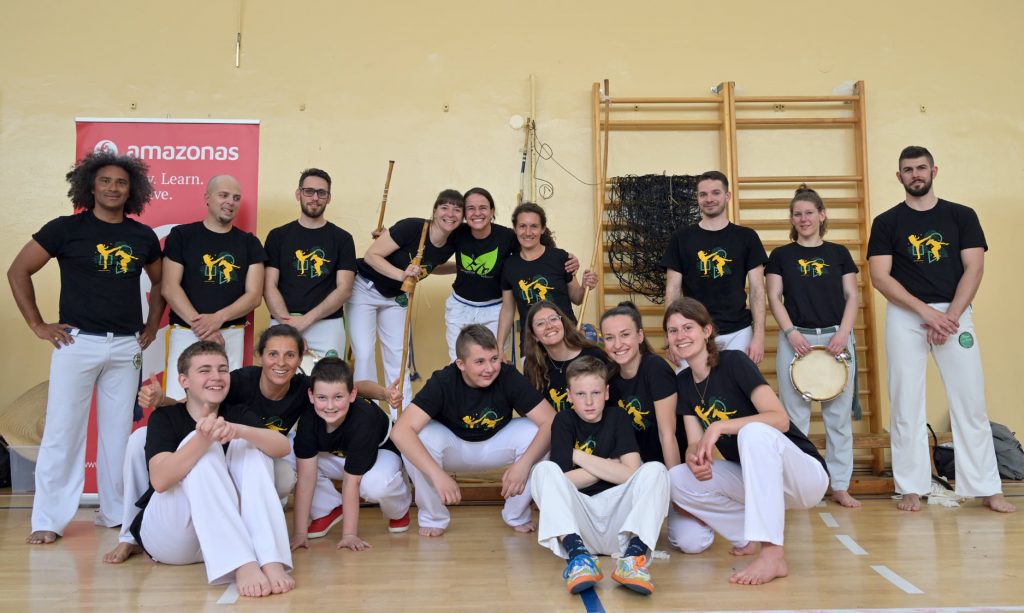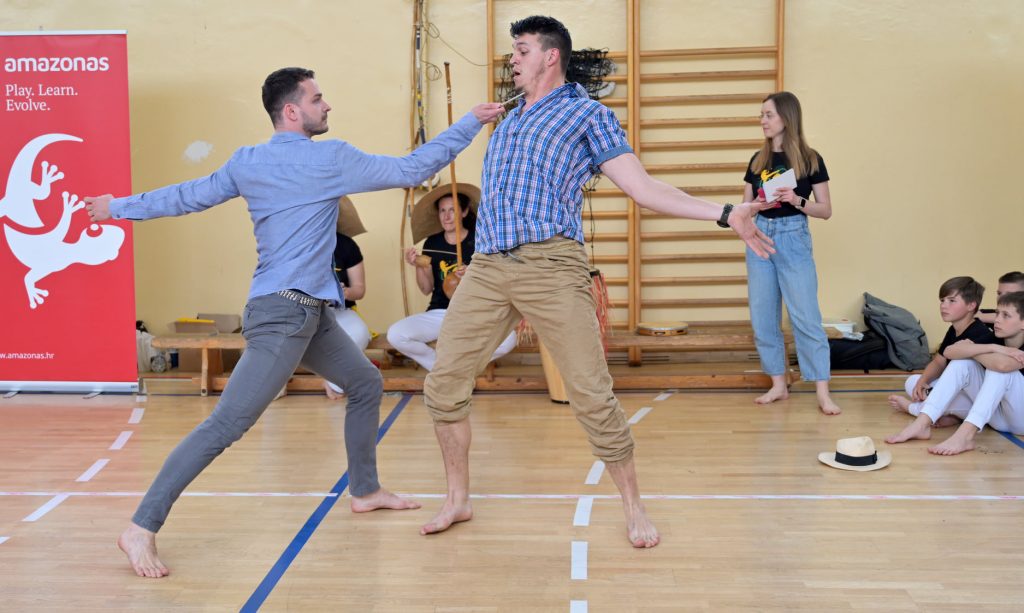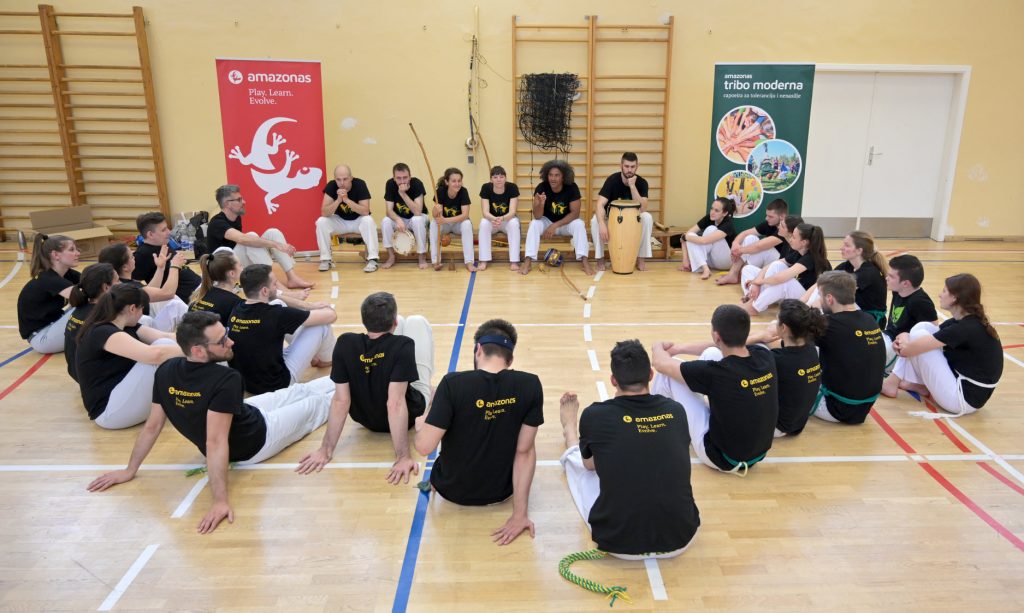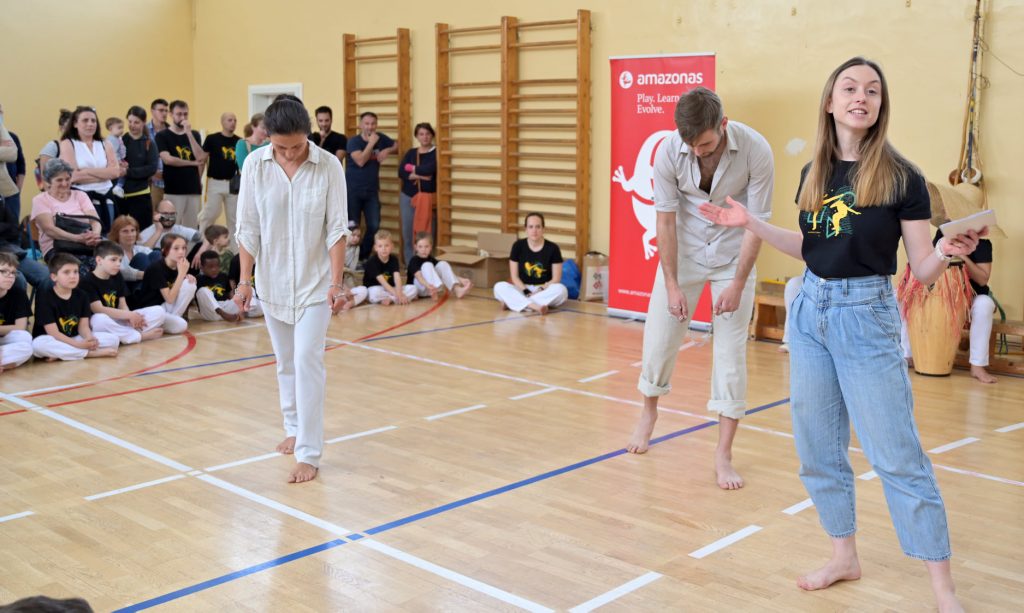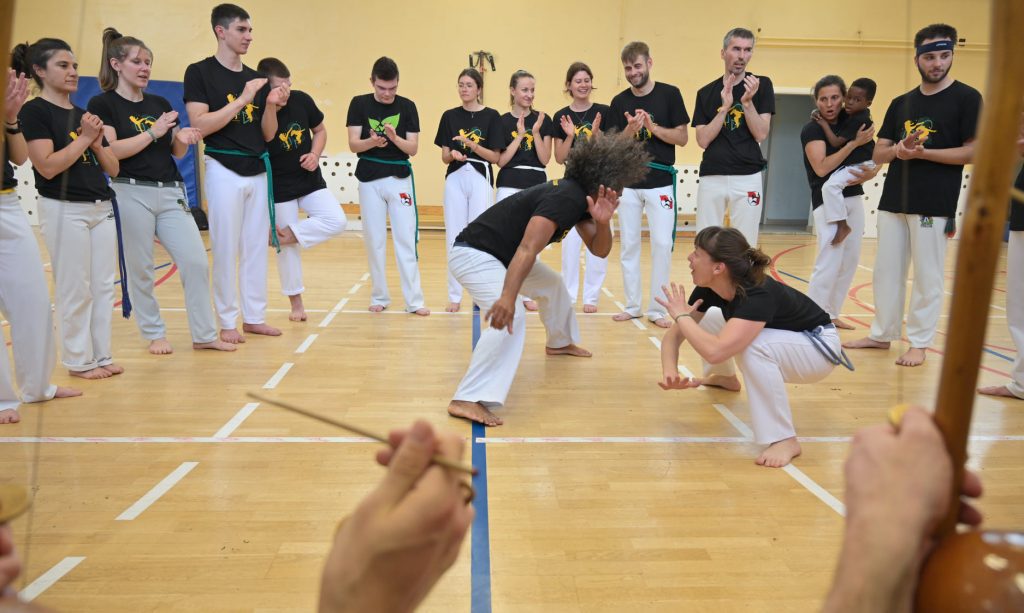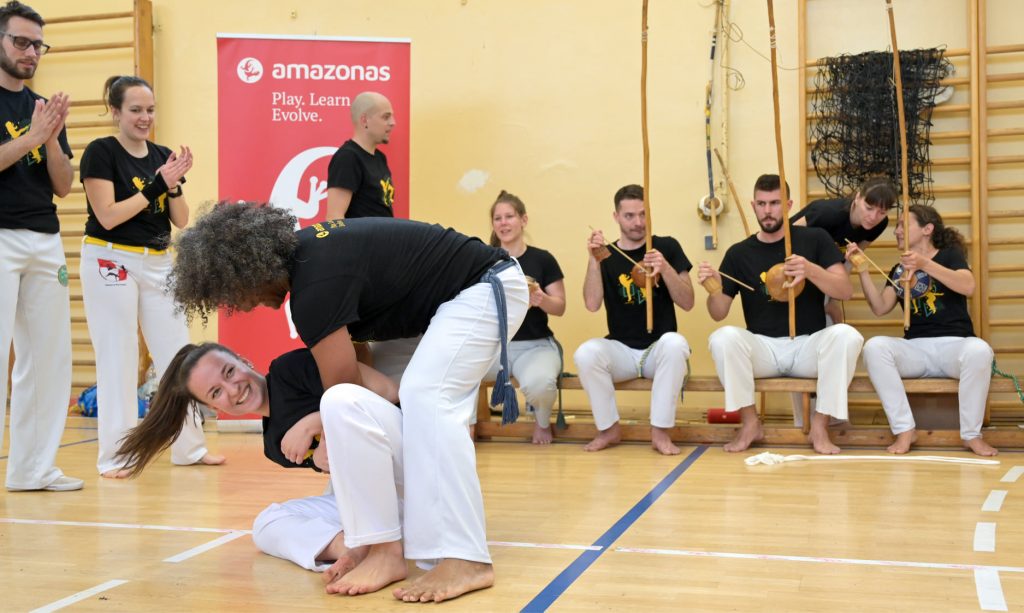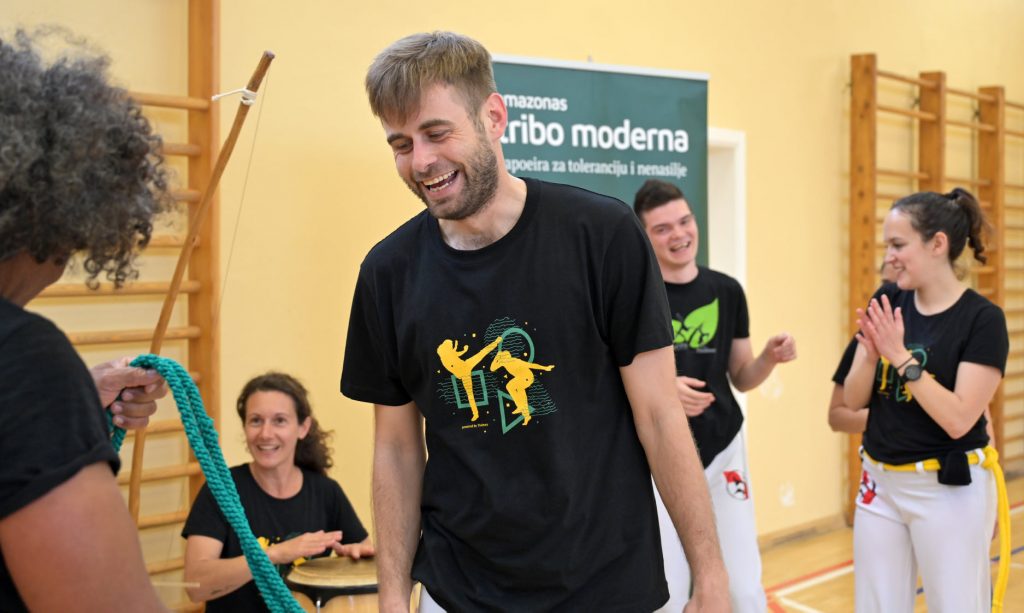Hi everyone! On the weekend of the 30th of April Amazonas held an annual Batizado event. Batizado (in Portuguese baptism) is an initiation ritual and ceremony during which capoeira members receive a Corda (the belt representing the rank in capoeira). In our case, it was joined with Troca de Cordas, an exchange of the cordas. Professor Peixinho, as well as, professors from the capoeira group in Rijeka came for this event. And in this month‘s article, I would like to tell you about what this event looked like.
What did the first day look like?
On Saturday the annual event of Batizado started. Because of Corona, the Batizado couldn‘t be held for 3 years. That means that many members have waited a long time to receive their cordas or to change their corda. The event had started with a capoeira workshop for adults, directly followed by a children‘s one. The kids were divided based on age into several different groups in which they practiced the moves or learned some new kicks before the big event started.
After the workshops, parents started to gather and Capoeira story could start. Many children or their parents maybe didn‘t know how capoeira became what it is today. For that reason, our trainers have prepared a little performance showing the life of African slaves and their fight for freedom. Despite knowing the history of capoeira myself, it was very different seeing it preenacted in front of me. Everyone was watching while holding their breath. It created the right atmosphere for the Troca de Cordas.
Troca de Cordas
Troca de Cordas literally means changing the cordas. Cordas represent the level of capoerista. During the troca de cordas some capoeristas receive a new corda after they play a game against a Mastre. During this game, they show their skills and earn the right to wear the new corda.
This event was meant for children to gain their first corda or to graduate to a new one. First, we started with the autistic boys we help during the trainings. It has been the first time for them to participate in this event. We were a bit worried about how it will be for them. Whether it will not be too overwhelming for them with so many people and noise. However, all four of them went to play in Roda and earned their first corda! It was so amazing to watch them and reflect on the whole year of trainings we had with them. How much they learned and grew during that time. The smiles on their faces. I felt like a proud mum watching her children.
After them, group after group went to play in the Roda and earn their cordas. It was so beautiful to watch the excitement on their faces. The energy every single person helped to produce. How supportive everybody was. Always when someone received their corda, all the parents, other kids, and members started clapping and cheering! It was truly beautiful.
In the last part of the day, after all the children and their parents went home, we had a Roda for adults. It was supposed to be just a nice ending to the day. To play one with the other. At least that is what we were told originally. After being told repeatedly that the corda ceremony is only for children this time, you can imagine the surprise when we were called to the front and told to play for our own cordas! But through the surprise and sudden stress, we made it! It was such a great experience and was made even more special by the element of surprise.
After us, several members changed their cordas and we finished the day with a Roda.
Sunday workshops
On Sunday we had two more workshops. First, Professor Peixinho led a Maculele workshop. What is Maculele you ask? Maculele is an Afro-Brazilian dance where the dancers hold two wooden sticks in their hands while performing. Its origin is linked with sugarcane production and plantations. Originally, Maculele was an armed martial art. A more daring and difficult version is to replace wooden sticks with machetes. This creates a unique visual effect because with every blow the sparks come out. Maculele can be practiced alone but is often practiced alongside capoeira in the Roda.
For our workshop, we rather stuck with the wooden sticks. I do not want to imagine how would it end up if we were given machetes. The group of us swinging the machetes around in the school’s gym. Someone would probably lose a limb in the least. We first started with warming up, to learn how to hold the sticks and to loosen up. The basic Maculele step reminded me a lot of Salsa dance. It was a lot of stomping on the ground (which my feet reminded me of for the whole next week). We have learned several sequences with a song to come with it.
We have also learned a story about the origin of the Maculele. At least one of them. There are many stories, theories, and beliefs about how Maculele came to be. But the one I liked and will share with you is about two tribes in Brazil. One was peaceful, while the other one was warlike. The warlike tribe would repeatedly attack the peaceful tribe, who didn‘t have a way to defend themselves. One day, a young boy named Maculele took a pair of sticks and fought the other tribe off. They never returned to attack again. In the boys‘ honor, his home tribe made a mock combat dance with two wooden sticks and called it Maculele.
Overall, it was an unbelievable atmosphere. There was so much energy in the air. I felt like I am really in an old Brazilian tribe preparing for the battle.
The second workshop of the day was the capoeira workshop led by Professor Tito. It was quite tough because we were all tired and our feet were hurting. But we all enjoyed it nevertheless. We practiced different combinations of moves and at the end, we had a final Roda.
So now you know all about this year’s Batizado! We have learned about capoeira history. Lots of new cordas were received. And we had a chance to try Maculele. During this whole event, I have realized that this is something I want my future children to do and experience. Because capoeira is not just about the sport. It is a community. And I am so happy I got a chance to experience it here and to become a part of this community.
Until the next time!
Hanka😊




